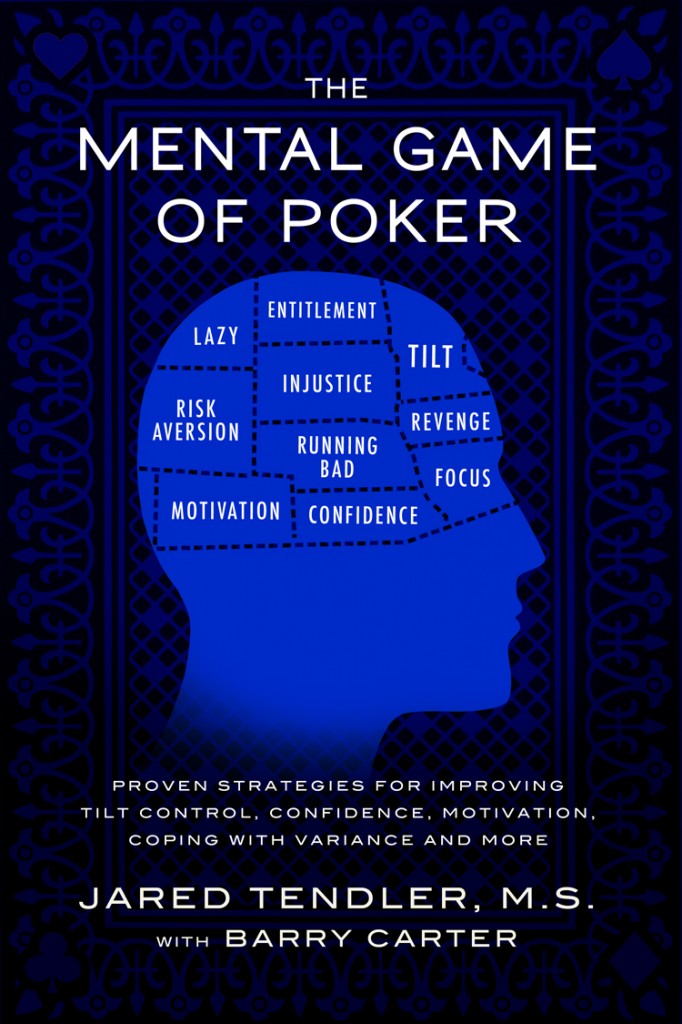Previous part of the book “Mental Game of Poker”: Recognition, deep breathing, logic insertion
4. Strategic Reminder
Depending on when you catch your emotion (how advanced it is), you may need some time to get back to solid play. You can shorten this time by reminding yourself of a few essential technical things.
This step has nothing to do with the psychological game; it's pure poker strategy.
For example, when trying to deal with an impending or ongoing tilt, you might make technical mistakes such as being too loose preflop, ignoring position, forgetting to assign a certain range of hands to your opponent, or not considering how your range looks to your opponent. Since you are dealing with a not fully functioning mind, those new skills you are currently learning disappear. To prevent this, write down one of these lists along with your chosen statement:
- A list of things that disappear (due to emotions) when you try to make decisions while playing poker.
- A list of all the factors you consider when making a decision.
You can't expect to always play your best game. Such thinking ignores the reality of brain function under intense emotions. A strategic reminder helps maintain control of the game.
5. Repetition as Needed
The psychological problems of your game are not yet resolved. While playing, those problems will return and bother you, much like a fly you keep trying to swat away. Be prepared to go through the first four steps again and again as needed to maintain emotional control and good play. On some days, you may need to repeat these steps more often than usual.
6. Stopping the Game
Stopping the game is a skill. One component of that skill is understanding when a psychological problem becomes too big to continue playing. There is no precisely defined rule that dictates when the best time to stop the game is. Sometimes you need to pull yourself together and just play, and sometimes you need to stop everything before it's too late. However, ultimately, solving the psychological problem of the game means that you have found a way to continue playing.
Some players have no choice—they must find a way to play despite any psychological problems. Tournament players are the best example of this, but even cash game players who make a living from it must find a way to play despite problems. The point is that without a clear plan for solving problems, stopping the game ultimately only improves the skill of stopping the game but does not solve problems like tilt. In fact, there are players who claim they don't have tilt problems because they simply stop playing before they start tilting. However, avoiding tilt does not mean the problem has disappeared. Tilt doesn't appear because they don't play, but this method is also costly because it loses game hours during which money could be won.
Stopping the game takes on strategic meaning when the player has a clear plan for solving psychological game problems. There is always a choice, and each player must decide what works best for them. The main factor to consider is the ability to recover and return to solid play. If you firmly know that you will not be able to recover, then stopping the game is necessary until you can return to the game with a clear head. If you firmly know or slightly doubt that you will recover, then consider the following method to increase your chances of success.
To play well during a bad period, mental strength is needed to control your emotions. Emotional control does not happen automatically. Effort is needed to develop mental strength. This can be compared to lifting weights to build muscles: start with weights you can lift, then gradually increase them. Similarly, instead of trying to continue playing in situations where you previously stopped the game, try to extend solid play by just 5 or 10 minutes and avoid major mistakes. When you feel you are becoming psychologically stronger, add another 5-10 minutes. Starting with small sessions and gradually forcing yourself to maintain good play longer, you will learn to control your emotions not only for certain hours but also during very unsuccessful periods.
Of course, such a strategy is somewhat risky. But you are a poker player. Evaluate the relative risk/reward of stopping and continuing the game and make the best decision depending on the situation.
The series of articles is prepared based on Jared Tendler's poker psychology book: “Mental game of poker”. Those who want to purchase the original, which is in English, can do so at amazon.com







